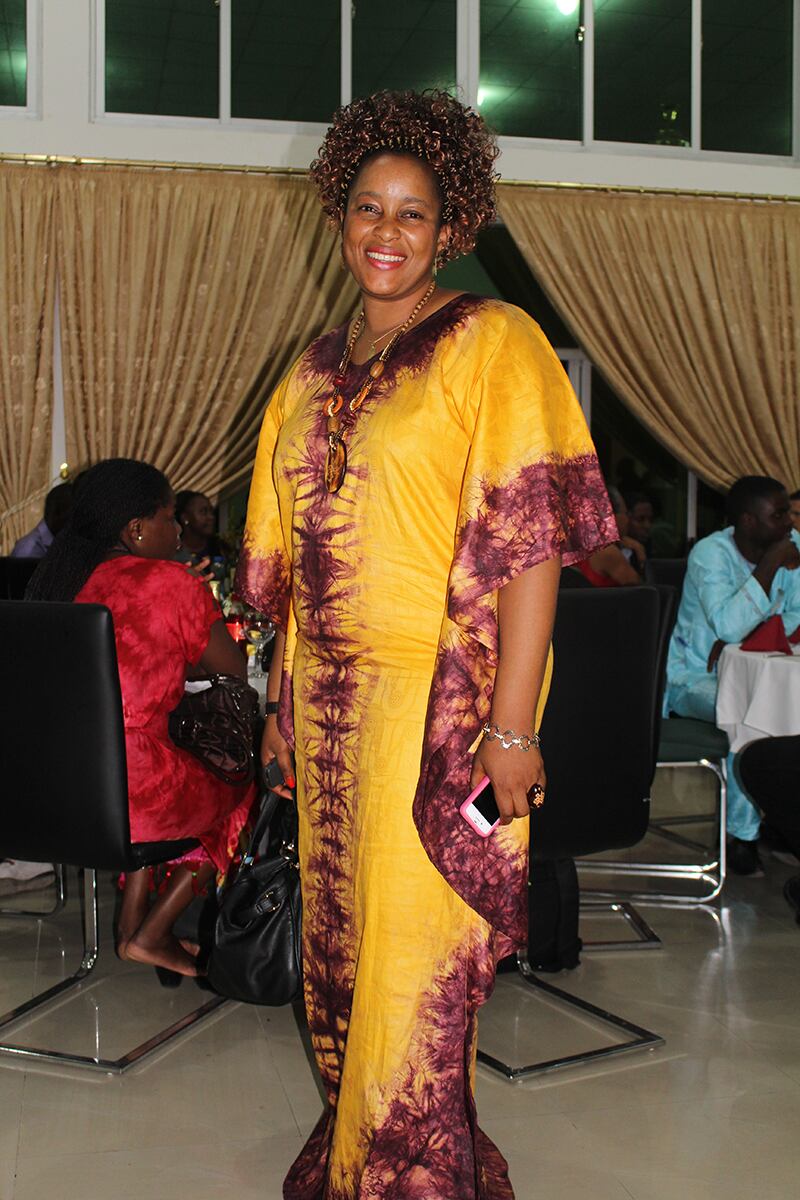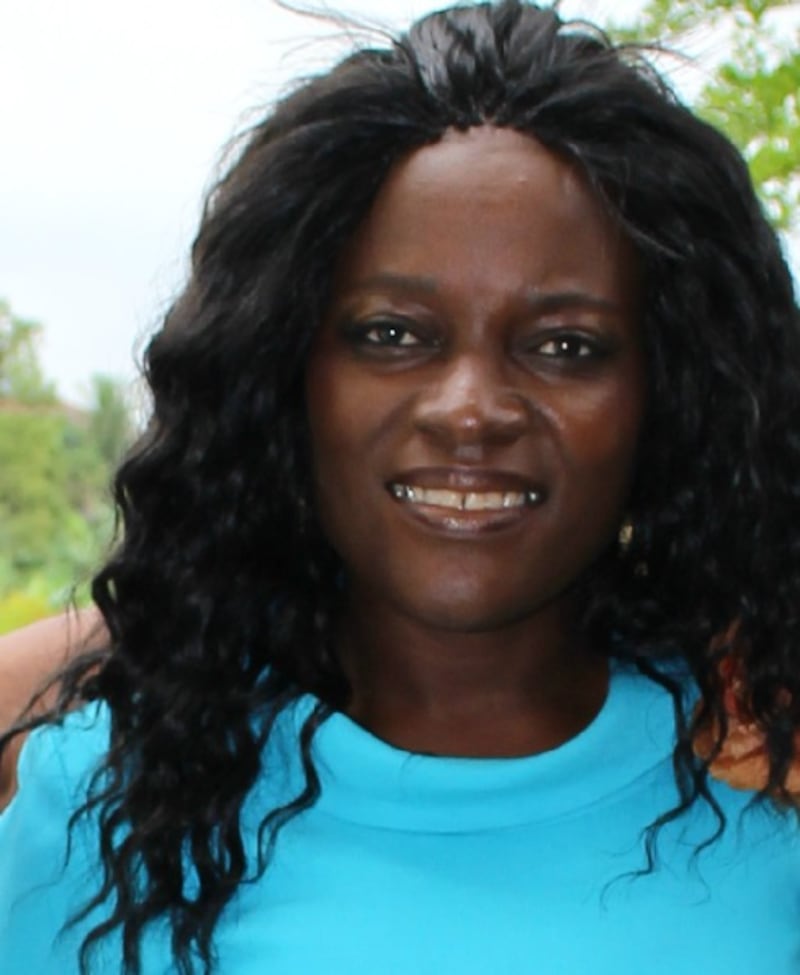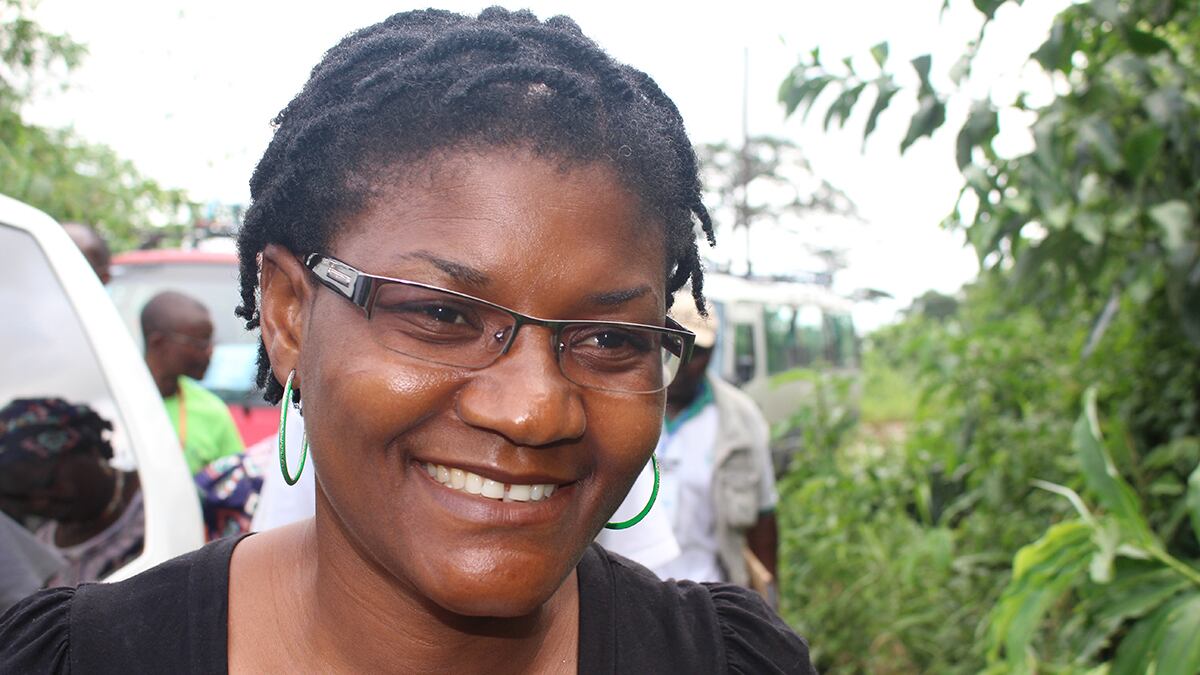Brenda and John Mazieno Nkwenti, married for four years with two young boys ages 4 and 2, are currently separated, because John wants his wife to be a housewife – just like the majority of Cameroonian women.
Brenda, now 34, is currently in tourism school, so she can realize her dream of opening a tourism business in Denmark that introduces Europeans to her beloved country, a lush and beautiful land in central West Africa. It has been ten years since Brenda made the decision to move, first to Holland, then Denmark.

“There were a lot of conflicts in [our] relationship because of my dreams,” Brenda explains. “He would say, ‘Oh, so you want to be big and stand out. What about me?’” Because Brenda is educated and has been independent since her early twenties, when she was renovating apartments for the Minister of Tourism, she resisted her husband’s demand that she stay home: “I never wanted anyone to make me lose my focus,” she says.
“It has not been easy as a woman, coming from a Cameroonian background,” she admits. “You find everyone around you just coming out of college and wanting to get married, have kids, and that's the end of it. You have to really look further.”
Although she received a diploma from a computer institute and had enrolled in the University of Buea, it was nearly impossible for Brenda to find work. She lacked “connections,” and as a woman, faced “a very intimidating situation.” Pressed for details, she adds, “The men want to sleep with you, and if you don't accept, then they will tell you there is no job.” At 24, after four years of humiliating treatment, Brenda decided it was time to leave.
While the unemployment rate in Cameroon is just 3.8 percent, it turns out that the largest unemployed group – 11 percent - are young, well-educated women who live in urban areas. For men of the same age and educational background, the unemployment figure is just 5.8 percent.
These women are college graduates who are looking for their first jobs.
The average time it takes to find that first job?
About 30 months.
In a 2013 survey of gender inequities in the West African labor market, researchers found that while 12 percent of men between the ages of 25 and 49 have “high job status,” which includes scientific, technical, managerial, and administrative management jobs, only 3 percent of women with comparable training have access to those jobs. “In Cameroon and Mali, most of the inequalities in access to top jobs are due to discrimination against women,” the report found, noting that “if women are assigned essentially the ‘reproductive’ role, they accumulate less human capital and are steered toward jobs [that] provide a better work-life balance.”
Forty-four-year-old Agatha Iyok runs her own business, Flora Travel & Tours Co., Ltd., in the coastal town of Limbe, where visitors flock to the black, shiny beaches, covered with volcanic sand. A mother to four boys, Agatha enjoys the self-sufficiency her private business affords and is enthusiastic when pointing her storefront out amid traffic on the main road.
Unlike Brenda's husband, Agatha's husband, Sammy, backs her career goals. “I feel he is very respectful of me,” Agatha says. “Yes, he is very supportive.”
Right out of college, Agatha began working at a family-owned business. After 10 years, she decided to venture out on her own as an entrepreneur. She is aware that both personally and professionally, she has been fortunate.
“Certain positions in Cameroon cannot be occupied by a woman,” she concedes. “It is not written in a book of law, but we are all aware it is a gender issue.”
Which jobs are seen as not female-friendly? “In Cameroon, I have not seen any woman as [managing director] of a high-ranking bank… In the military services, there has never been a woman general. Cameroon is divided into 10 regions, and each of these regions is headed by a governor. None has ever been headed by a woman.”
Esther Ayuk, judge of Limbe Court, Southwest Region, and president and founder of the Cameroon Young Jurists Legal Resource Center, says there are signs of progress. “There has been one woman (either third, fourth or fifth vice president) in the five-member bureau of the National Assembly for some years now,” she says, adding that in 2011, women cracked the “very coveted” rank of subdivisional officer, long meant for men only. “There has never been a female MD of a bank in Cameroon; however, a few women head branch offices.”
And this is where tourism comes in.
While tourism currently makes up just 3 percent of the Cameroonian economy, according to an October 2013 report by the World Bank, it still provides a new and fresh opportunity for women such as Brenda and Agatha to create their own businesses, or to work as employees. Since the number of annual visitors has almost doubled in the past three years (to 900,000), Cameroon now sees tourism as an important sector of economic growth for the country.
In a telephone interview, Serge Eric Epoune, head of communications in the Ministry of Tourism and Leisure, which supervises the country’s 500 hotels and 1,200 restaurants, says that “nearly 70 percent of tourism workers and entrepreneurs in Cameroon are currently women.”
Ironically, according to Epoune, there are gendered reasons as to why tourism has become a haven for women seeking employment. “Most of the jobs are naturally suited for women,” he declares matter-of-factly. “The reception - women welcome better than the men. Cooking and taking care of the rooms – this is an industry that is reserved for women. It is a matter of natural disposition.”
Epoune's perception of women's "natural" place in the workforce is representative of the wider society's perception and indicative of the challenges women face.
Although the tourism ministry does not keep official tallies, Epoune contends that women are not just being regulated to the wait staff or janitorial duties either; they are increasingly filling managerial positions too. “There are more and more women managing hotels, groups of hotels, and restaurants.”
Cameroon native Angelle Kwemo, founder of global consulting firm A Strategik Group, agrees that tourism is a major opportunity for educated Cameroonian women. “Tourism is housing, infrastructure, security, parks; it is food,” she says. “And all those places are managed by women.”

Kwemo also believes that encouraging women to take advantage of the opportunities associated with tourism will have an auspicious impact on the country at large. “When you look at how women use their revenue, almost 70 percent supports the family compared with 43 percent of men’s,” Kwemo said, citing the World Bank report. “Therefore, if you empower women, you have the power to empower an entire nation, and data backs that up."
And so it has been with Agatha. “Tourism has positively changed my life,” she says. “Tourism has built my confidence [and] improved my interpersonal skills.” However, as “a female entrepreneur,” she still has had “a number of difficulties in accessing financing” for her business, which underscores some of the biased decision making that happens when women aren't allowed a seat at the table.
Still, there are signs of progress. A year after our first interview, Brenda checked in to say that she and John were planning to reunite: “We are trying to make amends for the family and are planning to move back in together. He visits often.”
But does John accept Brenda the wife and Brenda the professional after two full years of separation?
“He has accepted everything.”
And while Brenda is clearly pleased by this new development, she has an even bigger motivation for achieving success: “I'm doing this for my two boys.” she says.




